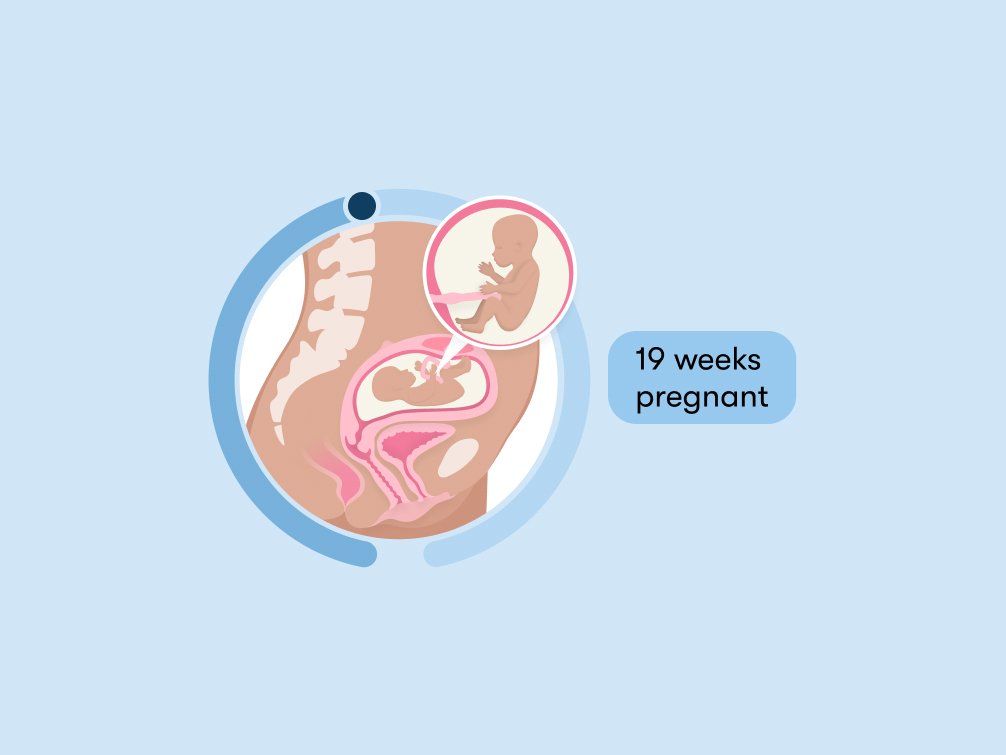During the 19th week of pregnancy, significant developments occur for both the mother and the baby:
For the Mother:

- Visible Baby Bump: By the 19th week, the mother’s abdomen continues to expand, and the baby bump becomes more noticeable. Many women may start to show more prominently, and maternity clothing may be necessary for comfort and support.
- Increased Energy: Some women experience a boost in energy during the second trimester, including the 19th week. This is often referred to as the “honeymoon phase” of pregnancy, characterized by reduced fatigue and improved mood.
- Breast Changes: The breasts may continue to enlarge and become more tender or sensitive. The nipples and areolas may also darken in color, and veins may become more visible due to increased blood flow.
- Round Ligament Pain: As the uterus expands, some women may experience round ligament pain, characterized by sharp or stabbing sensations in the lower abdomen or groin area. This occurs as the ligaments that support the uterus stretch to accommodate its growth.
- Emotional Well-being: While mood swings and emotional fluctuations are still common, many women may feel more emotionally stable and confident during the 19th week. However, it’s essential to continue practicing self-care and seeking support when needed.
For the Baby:

- Fetal Growth: By the 19th week, the baby continues to grow rapidly, measuring around 6.0 to 6.5 inches in length and weighing approximately 8.5 to 10.5 ounces. The baby’s body becomes more proportionate as it gains fat and muscle mass.
- Movement: The baby’s movements become more coordinated and purposeful during the 19th week. While these movements are still mostly felt by the mother as gentle flutters or “quickening,” they may become more frequent and noticeable.
- Formation of Vernix Caseosa: The baby’s skin is covered with a white, cheese-like substance called vernix caseosa. This protective coating helps prevent the baby’s skin from becoming waterlogged while in the amniotic fluid and provides lubrication during birth.
- Maturation of Senses: The baby’s sensory organs, including the eyes, ears, and nose, continue to mature. The baby may start to detect light through the mother’s abdominal wall, and the taste buds on the tongue develop.
- Auditory Development: The baby’s hearing continues to improve, and it may start to respond to external sounds, such as the mother’s voice or loud noises. This auditory stimulation plays a crucial role in the baby’s brain development.
Overall, the 19th week of pregnancy is a time of continued growth and development for both the mother and the baby. It’s essential for the mother to continue receiving regular prenatal care and to maintain a healthy lifestyle to support the baby’s development.
Visited 15 times, 1 visit(s) today

